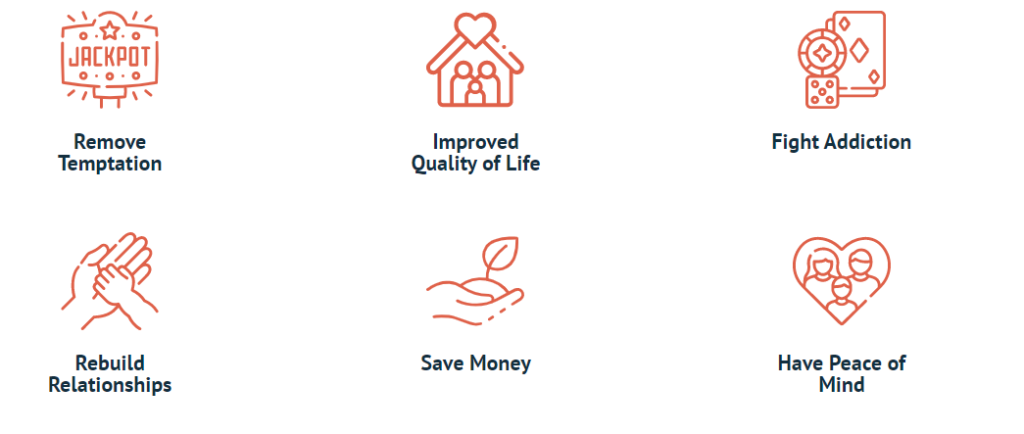
As a Kenyan, I am truly appreciative of the wealth of technological advancements I have witnessed in recent decades. Today, we can conduct business transactions from our mobile devices regardless of internet connectivity. Also, gadgets such as smartphones, tablets, and computers have become an inextricable component of everyday life, particularly in urban areas. Further, I have often marveled at the rapid expansion of telecommunication infrastructure in our country and the extensive permeation of the internet in our communities. The economic and social utility of these advancements cannot be overstated. They have created novel employment opportunities, expanded our capacity for innovation, connected us to global marketplaces, eased social interaction, and bolstered information exchange. Nonetheless, much as I would like to, this article is not intended to pay tribute to information technology and its overwhelming, favorable implications on our quality of life.
Instead, I would like us to delve into the intersections between these advancements and the ever-growing epidemic in our country; gambling. Sports betting has become one of the most lucrative investment areas in this country, with some gambling companies reporting revenues exceeding 30 billion Kenyan shillings per month (1). More Kenyans are betting than ever before, with recent statistics indicating that 57-76% of Kenyan adults have engaged in gambling (2). Kenyans lose a significant proportion of their income to gambling each year, with the average Kenyan youth spending over 1500 Kenyan shilling on betting each month (3). Evidently, the gambling industry has rapidly infiltrated our communities in recent years.
The rapid permeation of gambling in Kenya is surprising for several reasons. First, Kenya is a developing nation, where a significant proportion of the population grapple with severe socioeconomic deprivation. Indeed, it is impossible to reconcile the pitiful status of our economy with the astronomical revenue accrued by local betting entities. According to the world bank, over one-third of the Kenyan population lives below the international poverty line (4). The fact that Kenyans have managed to fund and sustain a multi-million-dollar industry despite this destitute state is as astonishing as it is concerning. Second, while most Kenyans reside in rural areas, most land-based betting establishments are located in major cities. Geographical distance should pose a formidable barrier to betting in rural areas, rendering gambling an urban concern. Nonetheless, the gambling industry has amassed considerable consumer bases in rural and urban areas alike. Finally, Kenya, like most African nations, operates a cash-based economy. This situation should pose a significant hindrance to betting, given the wealth of financial transactions required to initiate and sustain gambling behavior. Nonetheless, gambling entities continue to extract massive amounts of money from Kenyans each year.
It is quite baffling that gambling companies have managed to thrive in such a seemingly unwelcoming environment. Nonetheless, these inconsistencies dissipate after considering the extensive role of information technology in propagating betting behavior. Mobile banking remains one of the most revolutionary developments in the Kenyan financial sector to date. Before its inception, Kenyans, particularly those who resided in rural areas, had limited access to banking services. Mobile banking allowed Kenyans to conduct financial transactions with ease from even the cheapest mobile phones. Interestingly, mobile banking entities allow cash transfers from as low as one Kenyan shilling ($0.0088), rendering mobile banking accessible to the rich and poor alike. Today, a vast majority of Kenyans rely extensively on mobile banking platforms, such as M-Pesa and Airtel Money, to conduct everyday transactions. Indeed, mobile banking has become so prevalent that conventional retail banking establishments have gradually been replaced by minuscule M-Pesa agents.
Despite their notable utility, mobile banking platforms have been responsible for fueling the Kenyan gambling epidemic. Their privacy, seamless internet integration, reliability, ease of access and use has presented an opportunity that past casinos didn’t have. Not a long time ago, you had to walk or drive to the casino, queue to gamble and collect winnings. All these had to be done within the premises’ working hours. Now thanks to mobile money and the internet, all this is instant and available 24/7. The mobile banking industry’s role in propagating the gambling epidemic is evidenced by the considerable betting revenue accrued by popular mobile banking entities, such as M-Pesa each year. A recent article by the Business Daily Africa estimated that Safaricom collected close to 3 billion Kenyan shillings from betting transactions in 2021 (5). Also, Kenyans spent over 83.2 billion shillings on betting over a six-month period in the same year (5). These approximations are unsurprising when one considers the fact that Kenyans can deposit funds to gambling establishments directly from their M-Pesa or Airtel Money wallets. Besides, mobile banking entities frequently provide quick credit (Fuliza), allowing gamblers to fund their habit regardless of financial status. Indeed, after accounting for the widespread popularity of mobile banking, the barriers to betting posed Kenya’s cash-based economy, poverty, and geographical location become almost nonexistent.
Still, the pervasiveness of mobile banking does not explain how gambling entities have managed to extract millions of dollars from financially incapacitated Kenyans each year. However, this seemingly impossible feat becomes effortless after accounting for the myriad of effective advertising avenues afforded by information technology. A discussion of the contributions of IT to the gambling epidemic would be incomplete without considering the internet. A good number of Kenyans have internet-enabled gadgets, such as smartphones, tablets, and personal computers, evidenced by Kenya’s high internet penetration rates (6) Kenyan internet speeds rank among the highest in the world, surpassing those in developed nations, such as the United States (7). The gambling companies are aware of this and use our love for the internet, particularly social media to aggressively market their products. Advertising on search engines, social media, Pop up ads, banners displayed on major websites are some of the internet adverts. Their love for guerilla marketing has had some of them recently recruiting influencers all over social media to pose as tipsters and “give sure odds”. What the average gambler doesn’t know is that these tipsters usually collude with the companies to mislead him and eventually take a cut from his losses. This is Absurd!
Text messaging is another advertising avenue that remains one of the most widely utilized by betting entities due to its versatility, reach, low cost, and undeniable consumer engagement capabilities. This author can attest to being constantly inundated with promotional text messages from betting companies. It takes an iron will and incredible perseverance to disregard this incessant nudging. For most Kenyans, it is impossible to ignore these numerous text messages and their promises of quick financial gain coupled with non existent sign up bonuses for one crucial reason; socioeconomic hardship. Gambling entities frequently market betting as an opportunity to escape the harsh economic realities of living in a developing nation. In a country with limited viable income-generating opportunities, the temptation to gamble in the face of such predatory advertising tactics becomes almost inescapable.
To conclude, technology has made massive, undeniable contributions to the Kenyan gambling epidemic. Nonetheless, this article should not be misconstrued as a rallying call for the abolishment of technology. After all, it would be foolhardy to assume that such a feat is possible. Our willingness to embrace technology has brought about remarkable socioeconomic advancement and should be commended. Nonetheless, it is vital to acknowledge that with good comes bad. Our mandate is, therefore, to mitigate the bad, as we continue to enjoy and maximize the good. The Gambling Industry, the Government, and the Telecommunication companies all share the collective guilt when it comes to the bad that has occurred due to the Gambling epidemic. Despite this fact, they haven’t been at the forefront when it comes to minimizing, much less ending the gambling related harm. The largest portion of this burden lies with them solely.

That being said, Technology may also come to our assistance. Battling any form of addiction is not an easy task. Battling gambling addiction is even worse considering the havoc it causes to a person’s finances, relationships, and mental health. Many suicide cases have been reported over the past years as a result of the addiction. As an old saying goes, ‘ You can’t drink 20 liters of Alcohol in one night but you can pour all your life savings to a casino at a go!’ Gambling addiction is arguably the worst form of addiction. Launched in 2016, Gamban became the first software of its kind to block access to gambling sites and apps across all user’s devices. The solution has been brought to Kenya, thanks to the lobbying and partnership efforts of Gamban UK, the Responsible Gaming Federation of Kenya, and Gaming Awareness Society of Kenya. A landing page has also been created specifically for Kenyans, www.gamban.co.ke . This is a milestone considering Gamban is the only tech tool that works in the treatment space against gambling disorders in all of Africa. It’s a good start though whether or not technology will ultimately fix the mess it created… Time will tell.
- https://www.financeuncovered.org/investigations/leaked-betting-figures-raise-alarm-about-kenyas-235m-a-month-gambling-addiction/
- https://www.bbc.com/news/world-africa-44501875#:~:text=The%20country%20is%20the%20third,of%20the%20annual%20health%20budget.
- https://www.ijern.com/journal/2020/April-2020/11.pdf
- https://www.worldbank.org/en/country/kenya/publication/kenya-economic-update-poverty-incidence-in-kenya-declined-significantly-but-unlikely-to-be-eradicated-by-2030
- https://www.businessdailyafrica.com/bd/economy/kenyans-place-sh83-2bn-m-pesa-bets-six-months-3614814
- https://data.worldbank.org/indicator/IT.NET.USER.ZS?locations=KE
- https://www.standardmedia.co.ke/business/business/article/2001426833/senegal-and-mali-beat-kenya-in-internet-speed
- https://www.linkedin.com/pulse/gamban-kenyan-marketplace-stephen-aupy/?trackingId=No2AFqG8QzeO%2FYOvuuUYtQ%3D%3D
By Nelson Bwire and Victoria Wanja
